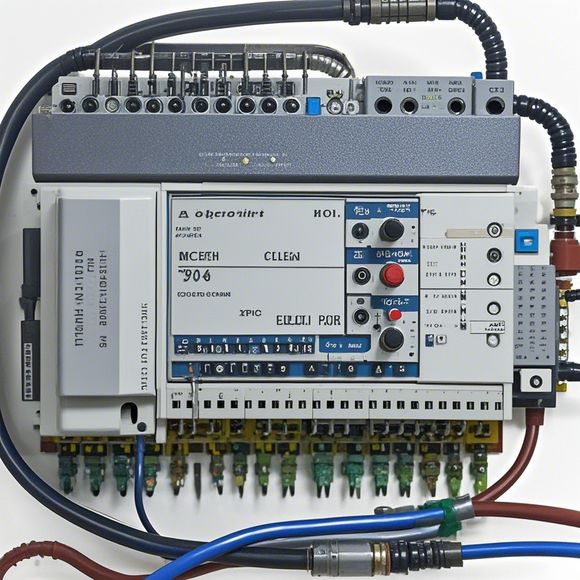What Is a PLC Controller?
PLC controller stands for Programmable Logic Controller, which is a type of industrial control system that can be programmed to perform various functions. This device allows for precise and efficient control of industrial processes, such as manufacturing, energy, and transportation systems. The key feature of PLC controllers is their ability to process real-time data and adjust the output based on that data. It's designed to operate in environments with high levels of complexity and uncertainty, making it an essential tool for modern industry.
Introduction:
Hello everyone, today I want to talk about one of the most important components in modern industrial automation – the Programmable Logic Controller (PLC). So what is it exactly, and why is it so crucial in our manufacturing processes?
First off, let's define what a PLC is. A PLC is an electrical device that is designed to control and monitor the flow of electrical signals in industrial environments. It's essentially a computer system that can be programmed to perform a range of tasks based on pre-defined logic. This makes it incredibly versatile and useful for various industries such as manufacturing, transportation, and healthcare.

Now, let's talk about its importance. With the rise of automation in manufacturing, PLC systems have become an essential tool for streamlining production processes and enhancing efficiency. They enable machines to operate more reliably and accurately, leading to better product quality and reduced downtime. Additionally, PLCs offer flexibility in terms of program changes, allowing for easy adjustments when necessary. And don't forget about their reliability; with advanced technology, they can withstand harsh conditions and last longer than traditional mechanical switches.
Another key benefit of PLCs is their cost-effectiveness. While initial investment may seem higher than some other automation options, the long-term benefits are well worth the cost. By reducing maintenance costs and minimizing downtime, PLCs can help businesses save money on labor expenses and increase profitability.
Of course, there are some potential drawbacks as well. One concern is the complexity of programming, which can sometimes require specialized knowledge. However, advancements in software have made it easier to create and manage PLC programs, making it easier for even non-technical personnel to use them effectively. Additionally, while PLCs can be expensive upfront, their long-term benefits often make them a worthwhile investment for many businesses.
So, if you're thinking about investing in automation for your production line, consider looking into PLC controllers. They're not only reliable and cost-effective but also offer a lot of flexibility in terms of program changes. And with ongoing developments in technology, we expect these tools to continue playing a vital role in the future of industrial automation.

In conclusion, the Programmable Logic Controller (PLC) is one of the most important components of modern industrial automation. Its versatility and reliability make it an essential tool for streamlining production processes and enhancing efficiency. While there are some potential drawbacks to consider, the long-term benefits of PLCs often make them a worthwhile investment for many businesses. So if you're thinking about investing in automation for your production line, consider looking into PLC controllers and see how they can help you achieve your goals. Thank you for listening!
Content expansion reading:
Articles related to the knowledge points of this article:
Smart Manufacturing Solutions with PLC Integrated Machinery
PLC Controller Selection Guide for Foreign Trade Operations
The cost of a PLC Controller: A Comprehensive Analysis
How to Use a PLC Controller for Your Business
The Role of Programmable Logic Controllers (PLCs) in Foreign Trade Operations